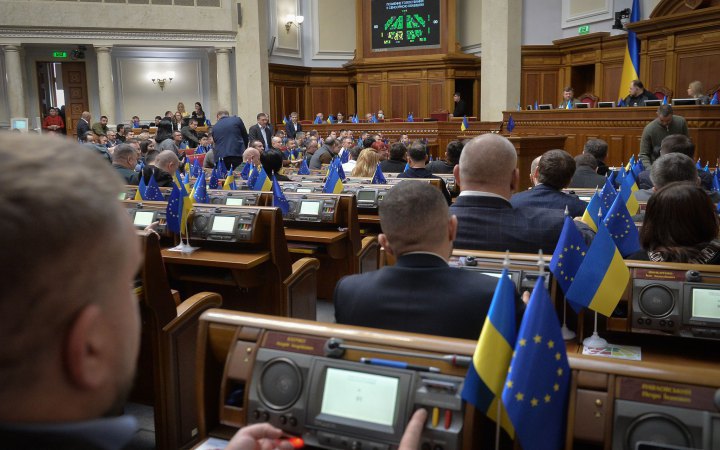The Ukrainian parliament has adopted the law on media with 299 MPs votes in favour, Voice faction MP Yaroslav Zheleznyak has said.
The Cabinet of Ministers defined the law as "a priority and one that is aimed at adapting the legislation of Ukraine to the provisions of the European Union law (EU acquis), fulfillment of Ukraine's international legal obligations in the field of European integration", the explanatory note finalized by the relevant parliamentary committee in August states.
On 30 August, MPs gave the first reading to the bill, suggesting that the powers of the National Council on Television and Radio Broadcasting should be expanded, and the influence of oligarchs and the work of pro-Russian media limited.
On the eve of the vote, the European Solidarity faction opposed the passage of the bill to the second reading. They reported that at an inter-factional meeting in the presence of European diplomats last week, amendments were agreed upon that brought the draft closer to European standards and the requirements of the Audiovisual Media Services Directive, but over the weekend they were canceled.
"But the Verkhovna Rada Committee submitted for the second reading a version of the law that poses serious threats to democracy in the country," the faction said.
In particular, the European Solidarity demanded that "the possibility of blocking Ukrainian online media by the decision of the National Council of Ukraine on Television and Radio Broadcasting be abandoned", the statement reads.
At the same time, according to a Servant of the People MP and member of the relevant committee, Yevheniya Kravchuk, the part concerning online media was changed for the second reading.
"We have even changed the sanction for registered media in the form of temporary blocking (it was a month). That is, for registered media there will be no temporary blocking, only through the court. Only if they write articles saying 'Putin, come, you are our savior,' the National Council can impose a fine and then go to court," Kravchuk explained.
"In the case of anonymous media, where there are neither identified journalists nor owners, the National Council can block them without a court decision. And everyone agrees with this, because it is not even clear to whom the National Council should write," added the MP.








